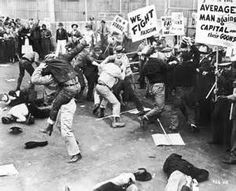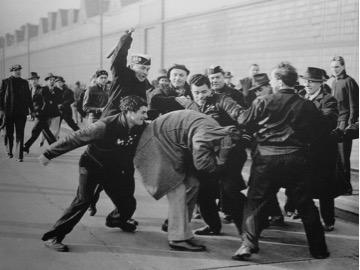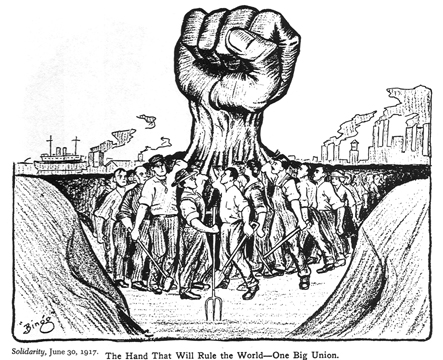There Is No “Conservative Case” for Labor Unions
My Law & Liberty colleague, James Rogers, makes an unpersuasive case for collective bargaining
Thanks to Cafe Hayek (here) and Real Clear Policy (here).

James Rogers’ “prudential, conservative case” for labor unions (“Crony Capitalism & the Case for Labor Unions”) rests on certain assumptions that, upon scrutiny, turn out to be either untenable or illusory.
1. He posits that government-sector unions and “union activities outside of collective bargaining” are excluded from his theoretical defense of labor unions, yet the labor movement bridges the public-private sectors (the nation’s second-largest union, the SEIU, represents employees in both, as does the UAW and others), and since their inception private-sector unions have used compulsory dues for political purposes, spawning decades of litigation by the National Right to Work Legal Defense Foundation. I briefly summarize this body of litigation in The Independent Review article that Rogers mentions. From Railway Employees’ Dept. v. Hanson (1956) to Janus v. AFSCME (2018), labor unions have displayed an incorrigible drive to engage in political activities with monies extracted from employees as a condition of their employment. Rogers’ exclusion of these features from his theory ignores the ineluctable reality of more than a half-century of American labor relations.
2. Rogers concedes that my critique of labor unions is valid in competitive economic markets (“I accept the bulk of [Pulliam’s] analysis,” he says), but invokes a caveat for hypothetical, non-competitive segments of the economy he characterizes as “crony capitalism”–in which rent-seeking businesses have obtained government intervention to assure excessive profits (what Rogers refers to as “economic profits”). Rogers does not provide any examples of such purported companies, but he assumes that they account for a significant sector of our “dual economy”; as a result, the owners of “crony capitalist” businesses are able to reap excess profits at the expense of workers and consumers. Absent collusion (prohibited by the antitrust laws) or insurmountable barriers to entry (which are rare), businesses earning “excessive” profits will soon attract competition, eventually restoring equilibrium and eliminating such “government-induced” profits.
3. Rogers asserts that labor unions are futile in a competitive market because “there is nothing a labor union can do to increase workers’ wages.” Conversely, the “excessive” profits in “crony capitalist” businesses—now inuring solely to the benefit of the owners—could be captured by labor unions as a “second-best solution.” Rogers’ assumptions collide with reality. The most heavily-unionized private-sector industries in America (such as auto manufacturing, retail grocery sales, and hospitality in urban areas) are highly-competitive. Why would unions exist, and continue to survive, in these industries if they were impotent? Unions can extract above-market wages and benefits, even in competitive markets, through coercion—the threat of industrial strife, especially strikes. At the same time, if some “crony capitalist” businesses enjoyed “excessive” profits, a portion of which could and should have been paid to ostensibly under-compensated employees, one would expect those workers to organize into unions and negotiate higher wages and better benefits. Yet, the most profitable segment of the economy–tech companies–are almost totally non-union. If these companies are ripe for unionization, why aren’t they unionized already?

Rogers’ prudential case for labor unions rests entirely on theories devoid of real-world application—the stuff of academic conjecture. Rogers’ essay reminds me of a quip by Walter Heller, former chairman of the Council of Economic Advisers. Heller jokingly defined an economist as someone who, when he finds something that works in practice, wonders if it works in theory.
































